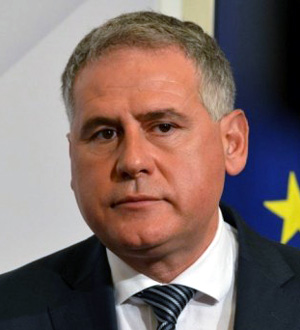“Act on the Economic and Financial Relations with Companies Registered in Preferential Tax Regime Jurisdictions, the Persons Related to Them and Their Beneficial Owners” - this is the full name of the act that we call the “offshore law” for short. A subject that is particularly poignant after the Panama Papers revelations that sent a tidal wave of indignation sweeping over the world. The indignation against failure to disclose incomes and tax evasion is just as strong in Bulgaria.
Yet in this country there is a certain sense of disappointment or even a lurking suspicion - the list of names involved in shady dealings does not include a single name of a Bulgarian politician, at least for the time being. After the Panama Papers revelations the European Commission knuckled down to amending its directives. From now on big companies will have to declare their revenues and the taxes paid in any of the 28 member countries or in offshore zones. Bulgaria is a step ahead of the other European countries in the regulation of offshore companies. A special act was adopted in 2014 banning them from doing business with the state by way of privatization, public contracts etc. Just a reminder - offshore business is not illegal but is amoral.
 The planned amendments to the offshore law are also in the interest of the public. Dimitar Tanev (Reformist Bloc), deputy chair of the National Assembly's budget and finance committee stated that the Panama Papers made it abundantly clear that not just Bulgaria but Europe needed a brand new set of laws in this sphere:
The planned amendments to the offshore law are also in the interest of the public. Dimitar Tanev (Reformist Bloc), deputy chair of the National Assembly's budget and finance committee stated that the Panama Papers made it abundantly clear that not just Bulgaria but Europe needed a brand new set of laws in this sphere:
“The law now in place has quite a few flaws, including the sanctions the institutions should apply. I am glad to say we were one step ahead of the debate within the EU prior to the Panama Papers scandal. The law that was supposed to be put to discussion in parliament was withdrawn in view of the consultations opening in the EU. We are expecting the EC to come up with initiatives and recommendations for stricter laws on economic operators in offshore zones.”
Individual countries in Europe that have come up against this problem before sought to resolve it by declaring an amnesty for money in offshore zones. This is an idea that was on the agenda in Bulgaria too, but Dimitar Tanev is sceptical.
“To my mind, this is not something that is workable here in Bulgaria. Even though we have sent a letter to the finance minister asking what kind of revenues we can expect in the treasury. An amnesty cannot work because in Bulgaria tax evasion is no problem, as taxes are excessively low. At 10 percent corporate tax, ours is among the lowest tax rates. The problem of capital flight is actually connected much more with the suspicious or downright criminal provenance of the capital, and for that money there should be no amnesty.”
Finance Minister Vladislav Goranov promised inspections of capital province and payment of taxes. “The state now has a strategy of action regarding Panama Papers data about Bulgarians with money in offshore zones,” he says. The first step are inspections by the National Revenue Agency to establish whether taxes have been paid on the money before it is diverted to offshore zones. In Minister Goranov's words “the use of offshore companies is indicative of an attempt to get away from something - your identity, the provenance of the money or paying taxes.” The government is in contact with the International Consortium of Investigative Journalists and, as other governments, has asked for information that will help the inspections. Investigative journalists however will not hand over the papers as this is the  explicit condition laid down by the anonymous source of Süddeutsche Zeitung newspaper, said Wolfgang Krach, editor of the Munich-based newspaper in an interview for Radio Bulgaria:
explicit condition laid down by the anonymous source of Süddeutsche Zeitung newspaper, said Wolfgang Krach, editor of the Munich-based newspaper in an interview for Radio Bulgaria:
“Investigative journalism lives on the trust the sources have in journalists. If we bend, just once, that would mean the end of investigative journalism as such. There will be no Panama Papers 2 because no one will believe us, journalists. That must not happen. As journalists it is our duty to protect our sources.”
All this makes it abundantly clear that the “cancer”, as the deputy chair of the National Assembly's budget and finance committee Dimitar Tanev called it, will engage the public for a long time to come. And shows, once again that the institutions - and this time not just in Bulgaria - are not doing their job. There probably exist many and different reasons for this - incompetence or lack of interest, for example. The Panama Papers are not the first investigation by journalists on the matter. And many a time has it transpired that the respective institutions were actually in possession of the same documents that were in the hands of the investigative journalists. These are examples that clearly indicate that the international cooperation among the investigation departments is neither as close nor as efficient as it should be to be able to cope with tax evasion, money laundering or other crimes.
English version: Milena Daynova
An emergency legal amendment has paved the way for the sale of Lukoil’s refinery in Burgas, opposition MP Ivaylo Mirchev, co-chair of Yes, Bulgaria, said on Wednesday. "Today, we have received confirmation that Lukoil has finally found a buyer for..
Last week, Bulgaria’s 51st National Assembly all but ground to a halt. On each of the three regular sitting days — Wednesday, Thursday, and Friday — parliament failed to reach the required quorum of 121 out of 220 deputies. On Friday, for instance, only..
Romania continues policy of gradual budget deficit reduction Romania should end the year with a budget deficit amounting to 8.4%, as compared to 9.4% at the end of 2024, as negotiated with the EU, PM Ilije Bolojan has announced. During his visit..
EU roaming fees to be eliminated for Albania and Montenegro Roaming charges between Albania and the EU will be completely..
Bulgaria’s Parliament failed to hold a session for the third consecutive day due to a lack of quorum. As a result, the scheduled parliamentary control,..

+359 2 9336 661
